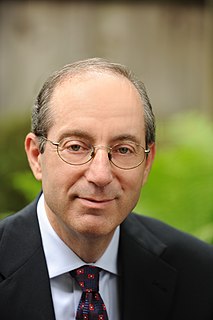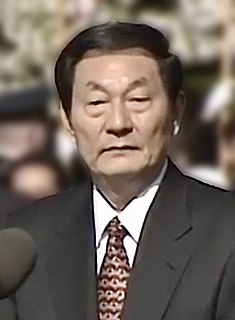A Quote by David Letterman
Based on what you know about him in history books, what do you think Abraham Lincoln would be doing if he were alive today? 1) Writing his memoirs of the Civil War. 2) Advising the President. 3) Desperately clawing at the inside of his coffin.
Related Quotes
I've just always had a personal fascination with the myth of Abraham Lincoln. And once you start to read about him and the Civil War and everything leading up to the Civil War, you start to understand that the myth is created when we think we understand a character and we reduce him to a kind of cultural national stereotype.
No president in history has been more vilified or was more vilivied during the time he was President than Lincoln. Those who knew him, his secretaries, have written that he was deeply hurt by what was said about him and drawn about him, but on the other hand, Lincoln had the great strength of character never to display it, always able to stand tall and strong and firm no matter how harsh or unfair the criticism might be. These elements of greatness, of course, inspire us all today.
Abraham Lincoln did have intellectual instincts, a tremendous curiosity on a broad range of subjects, and a near-photographic memory for what he read. He was, at the end of the day, a politician: politics were his heaven, said William Herndon. But Lincoln did take comfort in ideas and books, more so than almost any other president, and he went to books and ideas in moments of perplexity to sort things out. Philosopher, no, but thoughtful and "surprisingly well-read" for his day.
Until the early 90s, when I was working on a project about the idea of free will in American philosophy. I knew that Lincoln had had something to say about "necessity" and "fatalism," and so I began writing him into the book. In fact, Lincoln took over. I wrote instead 'Abraham Lincoln: Redeemer President,' in 1999, and I've splitting rails with Mr. Lincoln ever since. If there's a twelve-step process for this somewhere, I haven't found it yet.
There's been more written about Lincoln than movies made about him or television portraying him. He's kind of a stranger to our industry, to this medium. You have to go back to the 1930s to find a movie that's just about Abraham Lincoln. I just found that my fascination with Lincoln, which started as a child, got to the point where after reading so much about him I thought there was a chance to tell a segment of his life to to moviegoers.
Why did John Wilkes Booth do it? In My Thoughts Be Bloody young historian Nora Titone is one of the few to have genuinely explored this question. In doing so, she has crafted a fascinating psychological drama about one of the central events of the Civil War: the assassination of Abraham Lincoln. This book promises to stimulate lively historical debate, and will be a treat for every Civil War buff who always pondered that haunting question, “what made him pull that trigger?” Bravo on a marvelous achievement.
A lot of it was, you know, you look for moments where, for instance, we were dependent on Abraham Lincoln making sure that the slaves were freed or John Kennedy bringing civil rights, or the first one I wrote about, George Washington trying to stop the British from invading and ending this country before it even began. Those were turning points where, if you had not had a president stepping up to the plate, if there wasn't a story like that, we would not be here.































